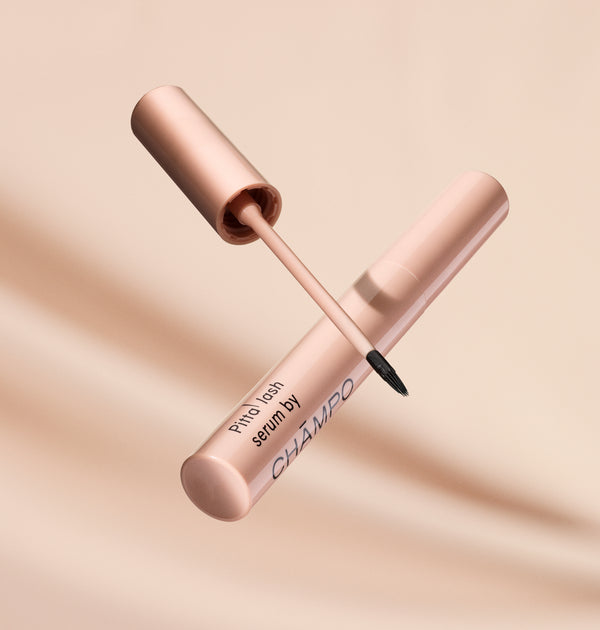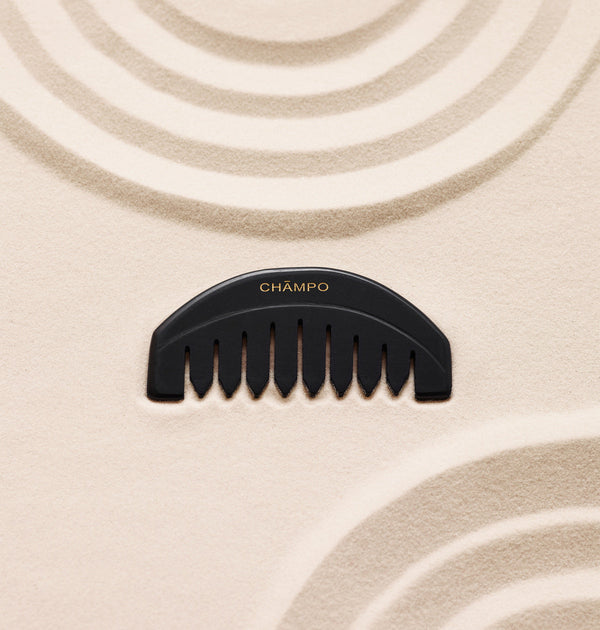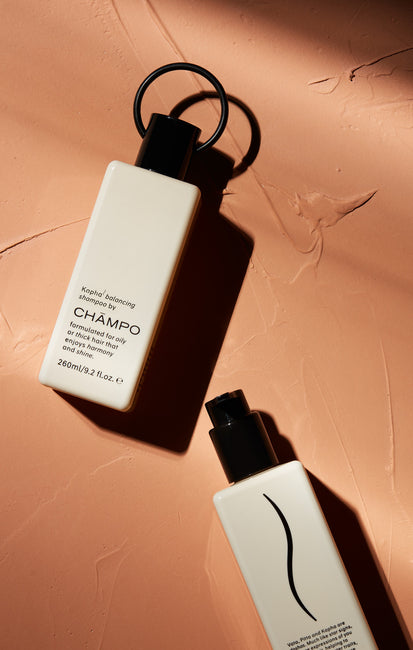This growing trend of hair loss, especially in young women, was something we wrote about almost two years ago. Recently, this growth has accelerated... and, while hair loss causes are both individual and varied, scientific research has proven beyond doubt that a sharp rise in stress levels is a considerable, and increasing, cause.
We have long acknowledged that poor nutrition, physical illness and hormonal upset impact hair health and loss due to their effect on the growth, rest and shedding phases in our hair lifecycles. With our body and mind intrinsically connected, the impact of stress is no different.
“I have been worried about hair loss for a while. I tried the volumising shampoo and conditioner during lockdown and have been really impressed with the results. My hair appears thicker and in better condition.”
Susan, Pitta
While there are several types of hair loss, stress undoubtedly plays a role in all of them - Telogen Effluvium, Alopecia Areata, Androgenic Alopecia and Trichotillomania:
Widespread, dispersed hair loss (Telogen Effluvium) is the most common kind of hair loss linked to stress. While it is normal to lose around 100-250 strands of hair each day, this figure can at least double with experiences of Telogen Effluvium. The reason? Stress triggers adrenaline production and disrupts diet and digestion, thus impacting the body’s absorption of vital nutrients. In response, our bodies preserve and protect our muscles, brain, lungs and heart. As a non-essential tissue, hair is not a priority. Its lifecycle becomes imbalanced, more follicles move from growth to resting and shedding phases; within 6-12 weeks, excessive hair loss is noticeable.
Alopecia Areata, an autoimmune condition, can also be triggered by stress (as well as illness, shock or an accident). It causes the immune system to attack hair follicles, believing them to be viruses or bacteria. The follicles become smaller, stop producing hair and one or more bald patches appear on the scalp.
Androgenic Alopecia, or male- and female-pattern hair loss, is a genetic condition
caused by sensitivity in your hair follicles to a certain form of testosterone. As stress often increases the body’s production of the hormone cortisol, this can raise levels of testosterone which, when occurring in women, causes increased hair loss.
Finally, hair loss as a result of ‘pulling’, or Trichotillomania, is used by many as a way of coping with stress, anxiety, depression, or trauma.
So why the sudden rise in new cases?
It doesn’t take much deliberating to discern the most likely answer. 2020 was a year like no other. Personal and professional routines were abruptly toppled and lifestyles changed beyond compare. Physical and emotional pressures escalated, brought on by prolonged social isolation, fear over catching the virus, concerns over recovery for virus sufferers, career anxieties and juggling home working with homeschooling. We focused on being watchful for virus symptoms; we weren’t anticipating the experience of hair loss.
Defeating stress-related hair loss
Hair plays such an important role in our identity, culture and confidence, so it will be welcome news to know that stress-induced hair loss isn’t permanent. Manage the cause and shedding will slow and eventually stop.
Sound easier said than done? Overcoming hair loss is, indeed, a challenge. But small, simple modifications to everyday habits will make it possible:
- Don’t fixate on hair loss. It will only augment anxieties.
- Seek sources of relaxation and self-care. Meditation, mindfulness, yoga, pilates and walking are all proven coping strategies.
- Boost your social support circle, even if it needs to be virtually in these times.
- Nourish your body with a wholesome, healthy diet. Ayurveda is a strong advocate of nourishing our bodies back to balance – a topic we discuss here. This boost of essential nutrients will not only help promote stronger, healthier hair growth, but also aid immunity.
- Care for hair. Avoid tight hairstyles, limit heat styling and refrain from chemical treatments. Seek out targeted formulations that help protect delicate, depleted hair and promote resilience and growth.
Regrowth will, of course, take time. For those wishing for a more instant effect, get acquainted with our Pitta volumising system. 98% natural, this award-winning shampoo and conditioner were our very first formulas, crafted for fine hair that may be experiencing thinning or hair loss in response not only to our founder’s own hair concerns but also those of many other young women.
Designed in collaboration with a trichologist and Ayurvedic doctor, this concentrated and highly effective care system sought to outperform any other similar product on the market… and the results from our tester panel didn’t disappoint. From first wash, they reported volume, moisture and shine. Within weeks, hair felt thicker and fuller with less breakage. The more they used Pitta, the better hair became. Countless other Chāmpo converts support these findings also.
From day one, our aim has been to empower you to enjoy healthy hair for life. By
selecting optimal concentrations of the very best quality ingredients, we hope you
feel assured that your hair health endeavours are in safe hands.
Shop the article
© 2021, all rights reserved.






